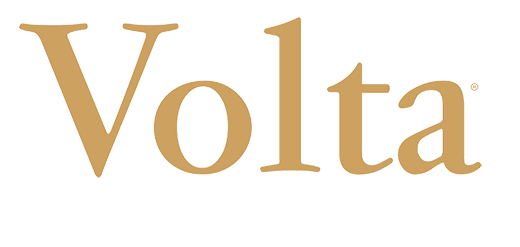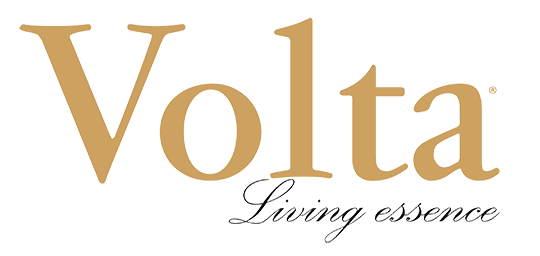Coping with the Unthinkable

Human societies, like small communities originally, seek, in essence, to be built based on the unity, institutionalism, and cooperation of everyone, in order to tackle not only internally created difficulties but also the great challenges and dangers concerning other communities, as well as the natural environment of each era. Obviously, in order for these to be accomplished, basic tools need to be used, like engineering, technology, and science, but also education, art, philosophy, and religion.
The main requirement has always been the sense and awareness of security, inclusiveness, and coherence, thus the creation of some kind of regularity, therefore, the aim is to manage and deal with anything unforeseen, not anticipated, or totally unexpected. Of course, as human life and conscience operate within the framework of liquidity, crises are always created, while new opportunities are born through various schemes and scenarios, or even coincidence.
Unquestionably, any extreme scenarios for the present and future of every society are active parts of natural and human history, at a local, regional and global level. In fact, if these cannot be dealt with fully and successfully, people and institutions need, at the very least, to be prepared properly to handle and deal with them relatively effectively.
Nowadays, as it seems, everyone notices the big issues of climate change, water pollution, deforestation, rapid urbanization, the ozone hole, the melting of polar ice, and the constant risk of epidemics or even pandemics.
Perhaps, these phenomena and their simultaneous occurrence used to be considered “unexpected” and “abnormal” once, however, in the last 70-80 years, combined with the sharp increase in knowledge and technology, as well as the occurrence of major and minor wars, everything seems reasonable.
In essence, for all the aforementioned, the main culprit is mankind itself, at a personal and collective level, as the immoral and harmful use of science and technology creates “black holes” not only in the natural environment but also in human souls, harmonious social relations, consciences as well as international relations of states, nations, religions, and cultures.
At any time, a terrifying cyclone can occur but also a spiritual turmoil which can lead to the nuclear holocaust or an “unforeseen” Natural and Technological disaster (NaTech disaster), as the tragic moments of Hiroshima, Nagasaki, Chernobyl, Bhopal, Fukushima, and Katrina remind us. Nothing is exactly the same, but everything is part of a realm where everything seems unknown, unplanned, maybe even paradoxical.
Indeed, the above-mentioned tend to create a frightening “supernatural image”. It is not possible for a man to fully understand the “algorithms” applied to nature and the universe, as well as to human nature, consciousness, and soul.

For this reason, mankind’s arrogance exceeds limits, and through exaggeration, is led to arrogance and defiance, therefore, to wrong and inhuman choices.
Instead of understanding that man is a part of nature and a global community, the man of insult seeks, permanently or occasionally, to subdue and exploit nature, as well as their fellow people, through inhumane ways of social classification and toxicity.
The eruption of Vesuvius, Mt Etna, Thera, and Krakatoa, may have been “unexpected phenomena”, but even those had given some warning signs.
However, they were either ignored or scorned. Of course, when they took place, the lowest and highest levels of adaptability and resilience of every society that experienced them and suffered their consequences were tested, Indeed, this is the actual test of whether one is prepared or unprepared, honest or dishonest, in relation to anticipating and dealing with the unexpected and anticipating any kind of surprise.
Obviously, apart from the natural environment, the “unexpected and abnormal” exists elsewhere, as well, for instance, in the field of politics and social engineering.
For some, the Holocaust, the Asia Minor catastrophe, the tragic atrocities in Rwanda, the Soviet and US withdrawal from Afghanistan, Pearl Harbour (1941), the 11th September 2001, or even BREXIT or AUKUS may not have been “tragically unexpected”. However, these developments, seemingly unpredictable by some, are prearranged and planned by others or decision centers more or less known, in combination with the factors of liquidity, life, and history.
Respectively, those factors obviously apply to the Agreement between Greece and France for multilevel cooperation and strategic relations (October 2021) and the multifaceted agreement between Greece and the USA (October 2021) of a rather strategic nature. At the same time, the rising prices in oil, gas, and electricity have unexpected consequences for citizens, companies, society, tourism, and shipping, as the Covid pandemic and stagflation unfold. These phenomena may have seemed “unlikely” in 1989-90 when there was vast optimism, but gradually, they tend to be the new normality.
To deal with all the above, contemporary planning and corresponding regulations are required. It is also an institutional necessity that everything should obey a holistic concept, to deal with any kind of phenomenon and modern challenge according to the theory of the “butterfly effect” or the “black swan”.

In particular, for the EU and NATO countries, it could be argued that everything is part of so-called “acquis communautaire”, the European and International law, which includes institutions, complex regulations, simple instructions, and a great number of guidelines. These coexist, in order to increase and efficiency of each society so that the unexpected, the “irregular” the “abnormal” and the like can be included and integrated into a wider system of predictability and management.
In this way, the environmental issue, the difficulty in ending the pandemic and the gaps in the supply chain can be addressed. At the same time, societies and economies are called upon to be prepared to face a major economic, investment, and stock market crisis, which could come from the US or China, or even a combination of both. After all, the omens are relatively obvious and many analysts and technocrats have been warning about it from time to time.
This new era demands new solutions, and therefore, promotes and supports a modern spirit and network for sustainable development combined with parallel and ancillary theories, actions, and practices for a circular economy, social corporate responsibility, and fair trade. The former parameters are part of a larger scheme for the 4th Industrial Revolution, the digitalization of data and digital transformations of economies and societies, the issue of renewable energy sources (RES), the promotion of digital currencies and the ever-expanding use of artificial intelligence, possibilities that can help societies.
Ultimately, the social, political, and scientific goal of all the above actions is the creation of a new administrative and managerial environment, socially, artistically, and aesthetically structured, which will be not only friendlier but also more compatible with the basic values of love, solidarity, peace, and reciprocity. Of course, the unexpected and the unthinkable penetrate and embrace every activity o human existence.
Therefore, it is always a question of being prepared for anything that can occur, through the structure of collectivity and the planned and coordinated actions of each society, in the face of mutual dangers and the great challenges of our times. Our common pursuit should be the protection of human life and dignity, peace, security, and the sustainable management of the natural and cultural environment.
What's Your Reaction?
Brigadier of the Greek Army – Analyst




